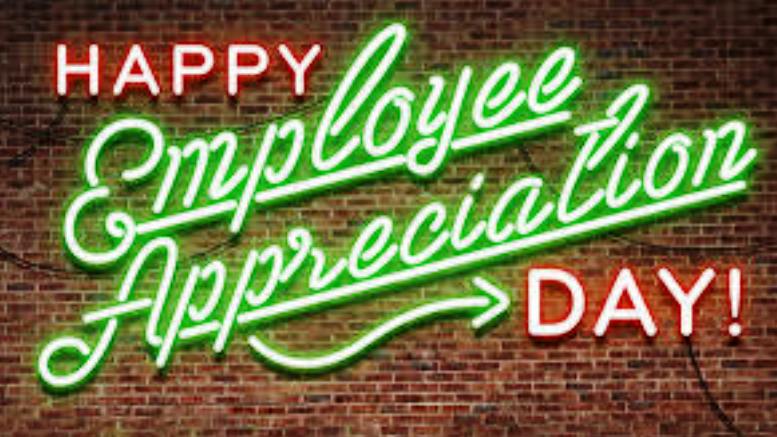Friday March 3rd 2017, went by with little fanfare.
Most people only noted it because it was a Friday and marked the beginning of the weekend. What many didn’t remember was that it was National Employee Appreciation Day – a day that never gets the level of recognition that it should.
Many think that the Day of Appreciation is strictly a corporate concept which has no place in the halls of government or proprietorships but the success of business, irrespective of where it is being done, begins with due recognition of employees. And success can never, truly, be claimed if there is a prevailing sentiment of employee dissent and dissatisfaction.
Managers at every level must constantly re-assess their leadership style. A leader has to be able to differentiate between employee respect for their office and mere tolerance or acquiescence out of fear of being disciplined or fired. Managing includes making the working environment tenable, where employees look forward to coming to spend their day and lend their enthusiasm to achieving the overall mission. Like many other studies on Human Resource Management and Employee Productivity, the Harvard Business Review concludes that employees should not be made to feel that the boss weaponizes company rules to assert authority, or as a form of punishment. So the working environment must be hospitable, must be friendly, must have an established level of emotional comfort.
And, it’s the little things that matter.
Showing that you care goes a long way. Being thoughtful builds productivity capital. When scheduling an employee for duty, everything should be taken in to consideration, particularly their family. The number of hours assigned should make sense, too. Putting an employee on the schedule for three hours per week is not only unconscionable but certainly damages Employee Relations Policy. In addition, subordinates should never fear their superiors or feel inferior when spoken to by a manager.
So, if you are the cause of any of these things you are not a boss, you’re a bully and quite frankly, you’re crossing the boundaries of employee harassment. Moreover, you’re contributing to loss of productivity and failure to meet goals, for if an employee is discomfited because his environment is hostile then his productivity is contained and the business suffers.
Bosses have to be able to recognize employee strengths. Micro managing is bad for business. It does not only stifle employee growth but it demonstrates a trait of territorialism that speaks to the boss’s own insecurity – the fear of giving others the chance to learn what he feels he alone should know, to secure his job. Creating conditions to increase the job knowledge of employees can only benefit the organization…so delegate, by all means,please.
And, do remember it’s never about being popular or beloved. It is about being respected for how one manages. Be wary of those who pay copious compliments or shower you with praises. If you’re the ‘best boss’ or the ‘world’s greatest supervisor’, do not take that literally. Do not think that it is a validation of your leadership. There are some who know how to appease to get by. Don’t let the fatuous compliment go to your head. In fact, the mark of a good leader is that of being able to win over those with whom he has differences.
Being the boss is a revolving title, one that remains in constant evolution. Often a boss becomes the only role model some employees have so the marrying of civility and humility to leadership is especially critical. There is, also, that moral element that is built into the title. The boss that delights in firing his employees because he can, knowing that he is putting that person out of a means of making ends meet, will have to face that karmic return. If you’re a parent, Boss, think of your own child in the work environment and what you would like for him. And, above all, think of the employee who may not have the tolerance to wait for karma, who may snap – as in the Postal Service employees whose ‘final straw’ reactions coined the term ‘going postal’….extreme but well documented.
Though dedicating one day to celebrate the contributions of employees/staff to business is commendable, employees should never feel that this gratitude is compartmentalized to this one day – while the rest of the year meets them with employer/boss adversity.
Statistics show that employees/staff who are engaged with due respect by their superiors are more likely to excel in production, trust senior leadership, remain on the job, call out less, cost the employer less in sick pay and even volunteer to work more.
Employee Appreciation Day is the day that employers celebrate their staff loudly, with pageantry, with overt displays of gratitude and recognition.
But this only seems sincere if the other three hundred sixty four days show the same level of acknowledgement – only in quieter tones.
https://hbr.org/2014/11/half-of-employees-dont-feel-respected-by-their-bosses


